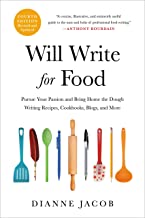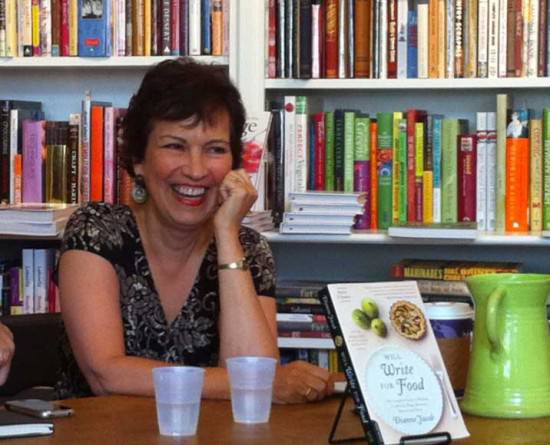Will Write For Food by Dianne Jacob
When you think about it, good writing is a lot like good cooking. An effective author has to prepare the correct mix of words, sentences and paragraphs spiced with just the right adjectives, adverbs and punctuation marks to make the brew go down best for readers.
If you’re a foodie who loves to write, then Dianne Jacob’s Will Write For Food (Lifelong Books 3rd Edition, July 2015) is a treasure trove of practical tips and techniques for those looking to thrive and survive in the food writing arena. Jacob has a wealth of knowledge in the field as a popular speaker at food writing conferences and workshops around the globe. She also happens to teach food writing courses.
The classroom is where Jacob realized that she was missing an essential resource: a great book on the subject. Now, three editions later, food bloggers, critics and celebrity chefs are calling Will Write for Food an absolute gift for those looking to pursue a career in food writing.
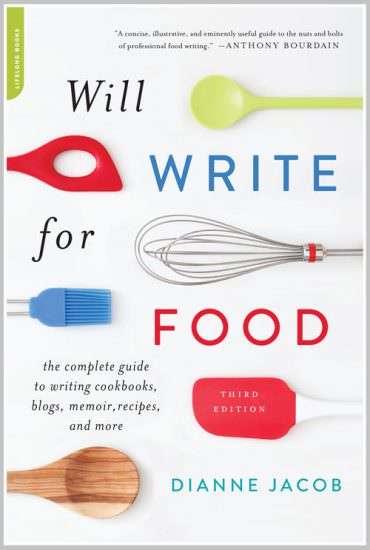 This book includes the essentials of food writing (covering the senses, making sure every word is the right word, no falling back on nostalgic family food memories) and then takes you through the process of setting up a blog, reviewing free products, going solo as a freelance writer, mastering the art of recipe writing and different approaches for restaurant writing. That’s just the tip of the iceberg.
This book includes the essentials of food writing (covering the senses, making sure every word is the right word, no falling back on nostalgic family food memories) and then takes you through the process of setting up a blog, reviewing free products, going solo as a freelance writer, mastering the art of recipe writing and different approaches for restaurant writing. That’s just the tip of the iceberg.
Jacob makes it clear that this is not your basic book on writing and that it uses food as a vehicle. Food writing is writing; it’s not a precise skill reserved only for those in the know. David Leites of Leites Culinaria sums it up: “Some people can write about changing motor oil with as much sensuality as eating a peach. It’s how you use the language, how you communicate.”
Things have changed since the book first covered blogs in 2005. An online forum basically ignored, blogs are now birthing the likes of celebrity cooks like Ree Drummond, author of The Pioneer Woman Cooks and TV star of The Pioneer Woman, and Shauna James Ahern of Gluten-Free Girl and The Chef.
If you’re looking for some food writing inspiration, here are three insightfully written and wonderfully quirky food memoirs that you should read now.
Life from Scratch: A Memoir of Food, Family and Forgiveness by Sasha Martin (National Geographic, March 2015)
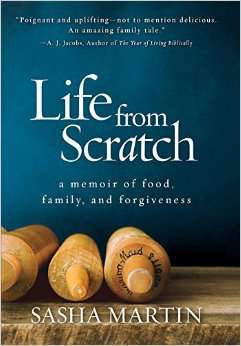 This is an unconventional love story perfect for anyone who has gone through family strife. After many hardships, Martin comes out on top as a famous food writer while discovering the true meaning of family and coming to terms with her past. Her bittersweet tale explores the power of cooking as necessary to bond and to heal.
This is an unconventional love story perfect for anyone who has gone through family strife. After many hardships, Martin comes out on top as a famous food writer while discovering the true meaning of family and coming to terms with her past. Her bittersweet tale explores the power of cooking as necessary to bond and to heal.
Unprocessed: My City Dwelling Year of Reclaiming Real Food by Megan Kimble (William Morrow, June 2015)
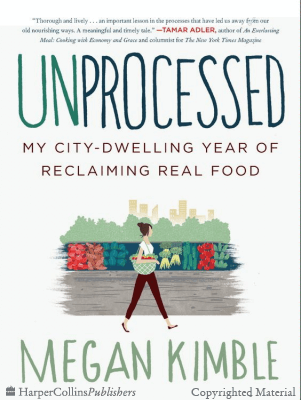 This book is seriously inspiring. Just when I come off of my three-day juicing detox feeling empowered, here’s a story that knocks my small feat out of the park: the author decides to eat unprocessed foods for an entire year, and during that time she learns what unprocessed really is—she actually mills her own wheat, extracts salt from the sea and completes more heroic foodie feats that you need to read to believe.
This book is seriously inspiring. Just when I come off of my three-day juicing detox feeling empowered, here’s a story that knocks my small feat out of the park: the author decides to eat unprocessed foods for an entire year, and during that time she learns what unprocessed really is—she actually mills her own wheat, extracts salt from the sea and completes more heroic foodie feats that you need to read to believe.
Slice Harvester: A Memoir in Pizza by Colin Atrophy Hagendorf (Simon & Schuster, August 2015)
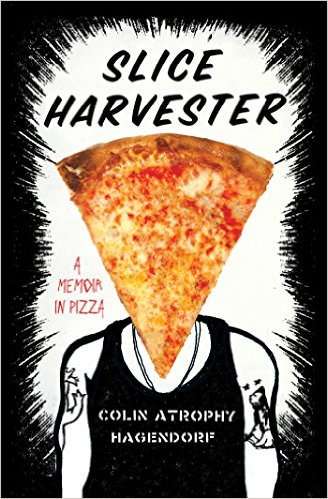 It’s a bird, it’s a plane, it’s the Slice Harvester! A punk rocker with a penchant for partying decides to taste every single slice of plain pizza in New York City and starts a blog about it. In the middle of this mozzarella-fueled madness, our super-slice hero finds his sobriety, true love, and his blog explodes, all while searching for that perfect pie in the sky. The best moments of the book are when the author uncovers those hidden urban gems full of cheesy perfection: “You’d never think from passing by here that there was anything special lurking inside, but that’s why I’m pounding the pavement, doing the hard work for you.” Swoon. Our hero.
It’s a bird, it’s a plane, it’s the Slice Harvester! A punk rocker with a penchant for partying decides to taste every single slice of plain pizza in New York City and starts a blog about it. In the middle of this mozzarella-fueled madness, our super-slice hero finds his sobriety, true love, and his blog explodes, all while searching for that perfect pie in the sky. The best moments of the book are when the author uncovers those hidden urban gems full of cheesy perfection: “You’d never think from passing by here that there was anything special lurking inside, but that’s why I’m pounding the pavement, doing the hard work for you.” Swoon. Our hero.
Recommended Reading:
Lesser Beasts: A Snout-to-Tail History of the Humble Pig, Mark Essig (Basic Books, May 2015)
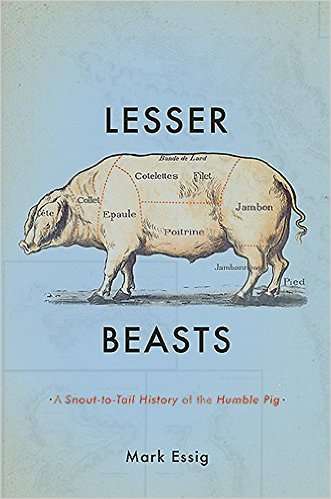 Want a side of history with your ham? You might think twice about where your crispy bacon comes from after you read Lesser Beasts. Although our cork- tailed companions have been a staple of the human diet since Neolithic times, pigs are the underdogs of barnyard animals simply because they aren’t capable of doing labor and they eat things unpalatable to humans. Judged as unclean, pigs have suffered at the hands of humans for years, and it’s throwing the relationship between pig and man completely out of balance.
Want a side of history with your ham? You might think twice about where your crispy bacon comes from after you read Lesser Beasts. Although our cork- tailed companions have been a staple of the human diet since Neolithic times, pigs are the underdogs of barnyard animals simply because they aren’t capable of doing labor and they eat things unpalatable to humans. Judged as unclean, pigs have suffered at the hands of humans for years, and it’s throwing the relationship between pig and man completely out of balance.
Buy this Book!
Amazon